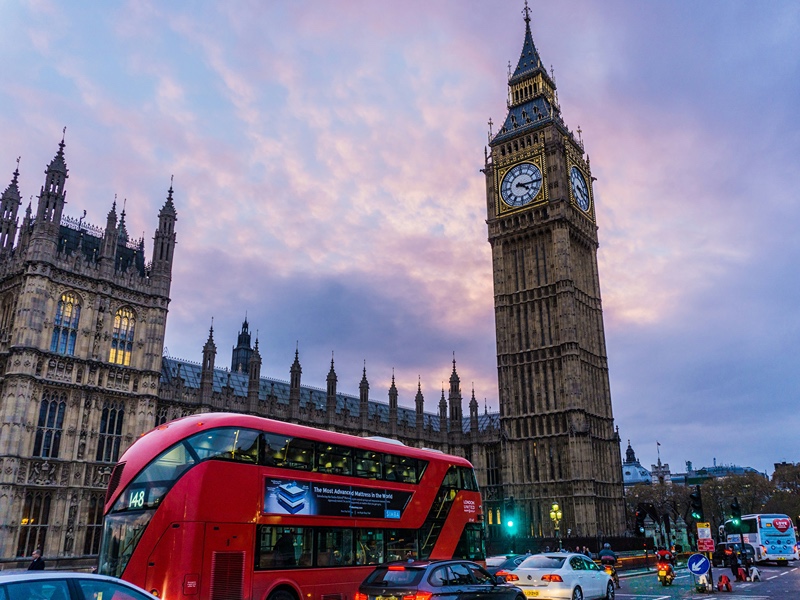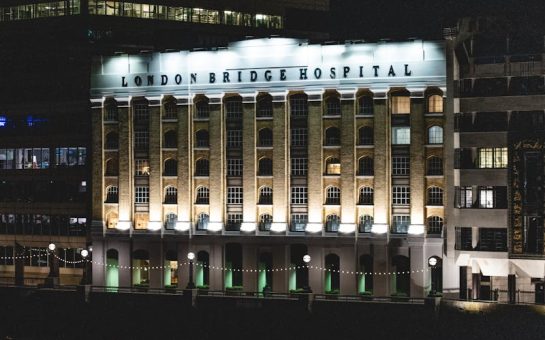The Rwanda Bill passed despite rising concerns surrounding the potential risks to victims and survivors of modern slavery and human trafficking.
The Rwanda Bill, Safety of Rwanda (Asylum and Immigration) Act 2024 officially became law and received royal assent on 25 April.
A legal analysis conducted by the Modern Slavery Policy and Evidence Centre concluded that the Rwanda Treaty and Bill were not compliant with the UK’s international legal obligations towards survivors of modern slavery.
Moreover, the National Referal Mechanism (NRM) received 17,004 referrals of potential victims last year in the UK alone, the highest number of referrals since the NRM began.
Philippa Southwell, Managing Director at Southwell and Partners and an award-winning and internationally recognised lawyer in modern slavery law said: “Many victims of trafficking are at risk if they claim asylum after the first of January 2020, they’ve come to the UK through a journey described as dangerous and they’re not in a family with children under the age of 18.
“The trafficking determination is taking well outside the 45-day guidance for a conclusive ground decision so victims are waiting up to a year, sometimes more than a year, to be formally identified.
“I’ve got cases where decisions have been pending for many years for various reasons, but there is such a backlog in cases and the determinations being made.”
Southwell warned that delays in reporting and identification mean some victims might be removed to Rwanda before being referred to the NRM or going through the identification process.
She added: “This is problematic and will impact many victims.”
The primary concern, according to Southwell, is the delay in identification and she highlighted that victims often do not identify or get referred immediately, increasing the risk of their removal to Rwanda before even being recognised as victims.
Rosalyn Rodin, Communications Officer at Hope for Justice, a global charity working to bring an end to modern slavery, said: “That legislation is anything but safe for victims and survivors of modern slavery and it’s further eroding the protection of those who are seeking refuge here in the UK, and that includes survivors of modern slavery.
“It will likely silence victims from speaking out about their exploitation.
“Despite multiple warnings over the impacts of that legislation, the bill has been passed without consulting the anti-slavery sector, subject matter experts and those who have lived experiences with slavery as well.”
Rodin told the Londoners that there are thought to be 122,000 victims of all kinds of modern slavery captured in their home office data but this is not even reflective of the actual overall estimates.
She added: “This is a hidden crime, it’s often hidden in plain sight. You’ve got survivors who are going undetected or who are maybe fearful of coming forward so actually, the total number of victims or survivors in the country is actually larger than that number and who are being referred to the NRM.”
Rodin emphasised that modern slavery is often hidden in plain sight, with many survivors going undetected or fearing to come forward along with a fear of authority instilled by their traffickers.
This, she claimed, will be exacerbated by the threat of expulsion, trapping victims in exploitation and limiting their access to support, allowing organised criminals to act with impunity.
Traffickers will often prey on those who already face disadvantages and vulnerabilities, such as fleeing persecution and conflict.
Rodin highlighted that under Article Four of the European Convention on Human Rights, the UK is obligated to protect survivors of modern slavery and human trafficking and to prevent exploitation and outlines that individuals have the right to be free from slavery.
However, Rwanda is classified as a tier two country, meaning that they don’t meet the minimum standards for eliminating trafficking.
She said: “By sending victims or potential victims to Rwanda, the UK is neglecting that responsibility and delegating it to a country that isn’t signatory to those European laws that we ourselves are.”
Hope for Justice has written a letter to Rishi Sunak and previously appealed to MPs to warn them of the potential effects of the bill on victims and survivors of modern slavery and human trafficking.
Liana Wood, Senior Associate Solicitor at Leigh Day law firm, said: “In 2015, we had the introduction of the Modern Slavery Act. It was hoped that it would be a big watershed moment and bring much-needed change and improvement for victims of modern slavery.
“This never really manifested but what we are seeing is an increase in victims being recognised and I have no doubt that the people that are being recognised as victims of modern slavery are just the tip of the iceberg because most people don’t get recognised.
“And of course, developments like the Rwanda bill will only make things significantly worse.”
Wood explained that it’s a highly complex issue that spans many sectors and different types of exploitation, covering a broad spectrum of individuals with no one-size-fits-all solution.
She highlighted the challenge of encouraging victims to seek help, citing factors such as mental health issues, addiction, or homelessness, which make them susceptible to trafficking in the first place.
Wood said: “There’s a little bit of better awareness, so some of the cases will have to do with more people being reported into the NRM, rather than more people necessarily being victims.
“But I do think that that’s only part of the story and there are also more victims and it’s a very complicated web of reasons.
“There’s this vulnerability to re-trafficking and I see that in my work time again as a result of that trafficking, that person then finds themselves trapped, vulnerable to trafficking again and I think we’ll see that a lot with people who will want to exploit the situation looking to re-traffic those people who are already traumatised and vulnerable.”
Robyn Phillips, Director of Operations at the Human Trafficking Foundation, an all-party parliamentary group focused on human trafficking and modern slavery policy advocacy, said: “Modern slavery used to be very much seen as a safeguarding response to an economic crime and in probably the last three years, it’s been conflated with smuggling and positioned within an immigration context and actually, we know that 25% of the victims identified in the UK are British nationals.
“So it’s not solely an immigration issue at all and by positioning it under immigration, firstly, it distracts from the fact that this is a horrendous crime that happens to individuals and they can be victims no matter what their immigration status but it also distracts from the fact that British nationals are also victims.”
Phillips stressed how many survivors in London are British children being made to carry drugs.
She added: “There’s a fear among survivors that they won’t be believed, or if they do come forward, they risk being removed to Rwanda and that then just pushes people underground, preventing them from escaping.
“So there’s a fear not just for people who are already survivors of modern slavery, but we risk creating more victims through this policy.”
Phillips emphasised how collaboration is key, that no one agency can tackle this alone and that it is not just a police problem or a council problem.
She added: “The truth is, we’ll probably pass a survivor of trafficking pretty much daily by going around our daily lives, being served in shops or passing somebody on the street.
“We’re not talking about people who are physically bonded here, we’re not looking for chains or ropes and it’s very much people trapped in death bondage or coercion control, which makes it difficult to spot.”
Spotting modern slavery isn’t always easy, but certain signs such as malnourishment, language barriers, inappropriate clothing, indications of being controlled by someone else, excessive working hours, fearfulness and untreated injuries can reveal potential victims.





Join the discussion